Publications
For submission of articles or Working Papers to CEsA, please send an email to:
comunicacao@cesa.iseg.ulisboa.pt
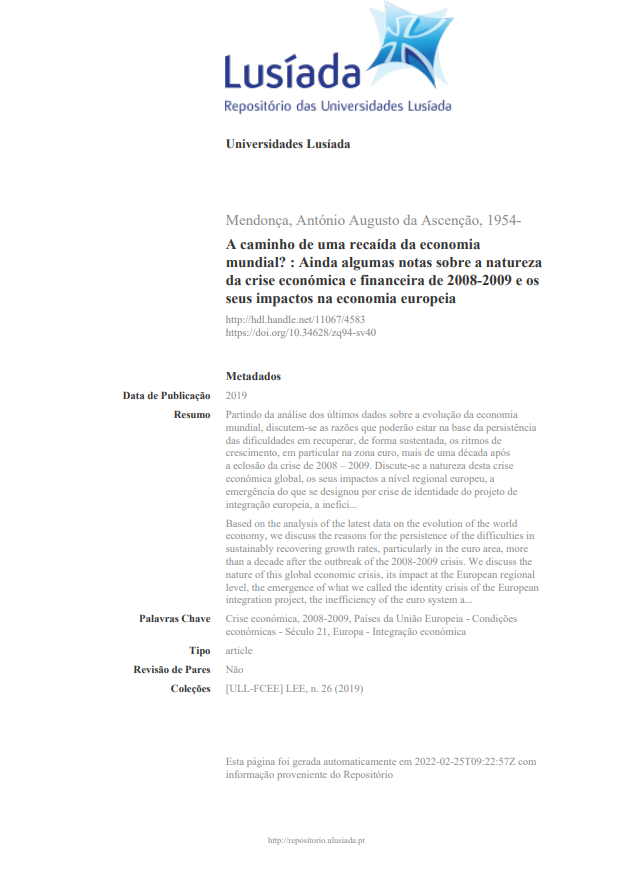
A Caminho de uma Recaída da Economia Mundial? Ainda Algumas Notas sobre a Natureza da Crise Económica e Financeira de 2008-2009 e os seus Impactos na Economia Europeia
Abstract:
Based on the analysis of the latest data on the evolution of the world economy, the reasons that may underlie the persistence of the difficulties in recovering, in a sustained manner, the rates of growth, particularly in the euro zone, more than a decade after the outbreak of the crisis of 2008-2009, are discussed. The nature of this global economic crisis is discussed in A caminho de uma recaída da economia mundial? : Ainda algumas notas sobre a natureza mundial? : Ainda algumas notas sobre a natureza da crise económica e financeira de 2008-2009 e os seus impactos na economia europeia, its impacts at the European regional level, the emergence of what has been called an identity crisis of the European integration project, the inefficiency of the euro system as an adjustment mechanism, internal and external, and the role of unconventional monetary policy. The conclusion is that Europe needs to undertake a profound redefinition of its integration project, including the redesign of the euro system in light of the recent experience of unconventional monetary policy. In this process, it is considered that there is an important place for Portugal, as an Atlantic European country, whose identity was formed and consolidated in the process of constitution of the global economy.
Quotation:
Mendonça, António .2019. A caminho de uma recaída da economia mundial?: Ainda algumas notas sobre a natureza mundial?: Ainda algumas notas sobre a natureza da crise económica e financeira de 2008-2009 e os seus impactos na economia europeia”, Lusíada – Economia & Empresa, nº 26, p. 31-66
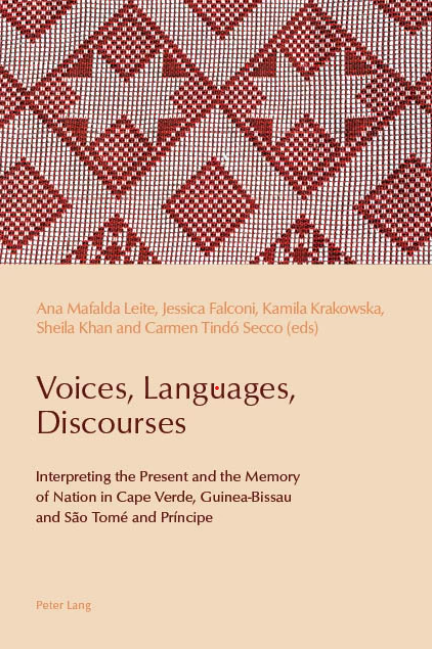
Voices, Languages, Discourses: Interpreting the present and the memory of Nation in Cape Verde, Guinea-Bissau and São Tomé and Príncipe
Abstract:
Voices, Languages, Discourses: Interpreting the Present and the Memory of Nation in Cape Verde, Guinea-Bissau and São Tomé and Príncipe brings together a selection of interviews with writers and filmmakers from Cape Verde, Guinea-Bissau and São Tomé and Príncipe in order to examine representations and images of national identity in these countries’ postcolonial narratives. It continues and completes the exploration of the postcolonial imaginary and identity of Portuguese-speaking Africa presented in the previous interview volume Speaking the Postcolonial Nation: Interviews with Writers from Angola and Mozambique (2014). Memory, history, migration and diaspora are central notions in the recreation and reconceptualisation of the nation and its identities in Cape Verdean, Guinean and São Tomense literary and film culture. By bringing together different generations of writers and filmmakers, with a wide variety of perspectives on the historical, social and cultural changes that occurred in their countries, this book makes a valuable contribution to current debates on post-colonialism, nation and identity in these former Portuguese colonies.
Quotation:
Leite, A., M., Falconi, J., Krakowska, K., Kahn, S., Secco, C. (2020). Voices, Languages, Discourses: Interpreting the Present and the Memory of Nation in Cape Verde, Guinea-Bissau and São Tomé and Príncipe. Oxford, United Kingdom: Peter Lang Verlag. Retrieved Oct 6, 2022, from https://www.peterlang.com/document/1055586
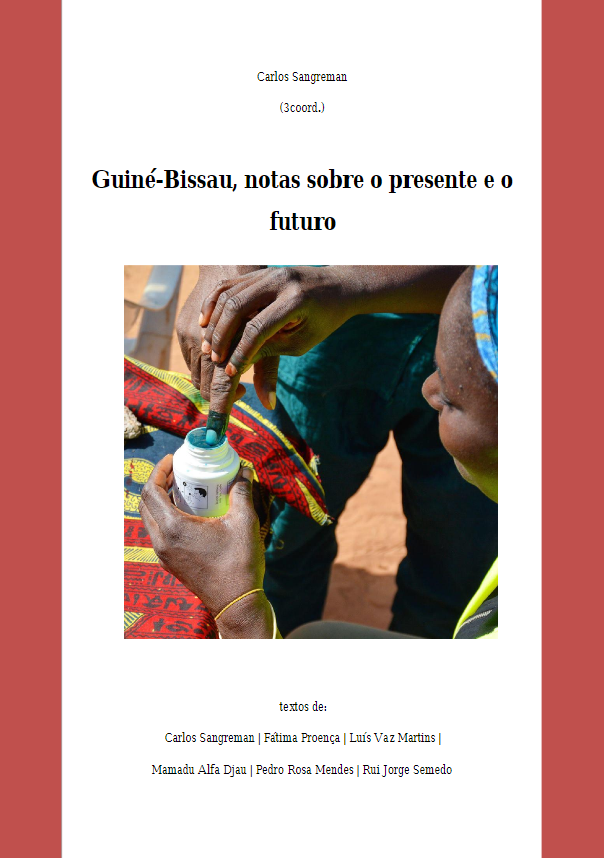
Guiné-Bissau – Notas sobre o presente e o futuro
Abstract:
The idea of publishing the book Notas sobre o presente e o futuro of Guinea-Bissau arose from the need to get to know the country better and to think about its recent past, which will inevitably contribute to its near future. The aim was to collect existing texts that were revised and updated and to ask some authors to reflect on themes based on the motto “Guinea-Bissau, notes on the present and the future”. These texts are published at a special moment in the country. After a period of a government appointed by the military that took power in 2012, elections were held in 2014 and a round table was held in Brussels where the country received a great deal of encouragement from its international partners – institutions and countries – in support of a government and a president that everyone had hoped would provide a more stable and successful evolution such as there had not been until then. But these expectations came up against a conflict between sovereign bodies, which frustrated this support and threw the country into a four-year period of instability that began to end with the legislative elections on 10 March 2019 but is only expected to return to normal institutional functioning with the presidential elections in November of the same year.
Quotation:
Sangreman, Carlos, Fátima Proença, Luís Vaz Martins, Mamadu Alfa Djau, Pedro Rosa Mendes e Rui Jorge Semedo Guiné-Bissau – Notas sobre o presente e o futuro, com, ISBN 978-989-20-9932-3, CESA-ISEG/ULisboa, 2019, Lisboa.
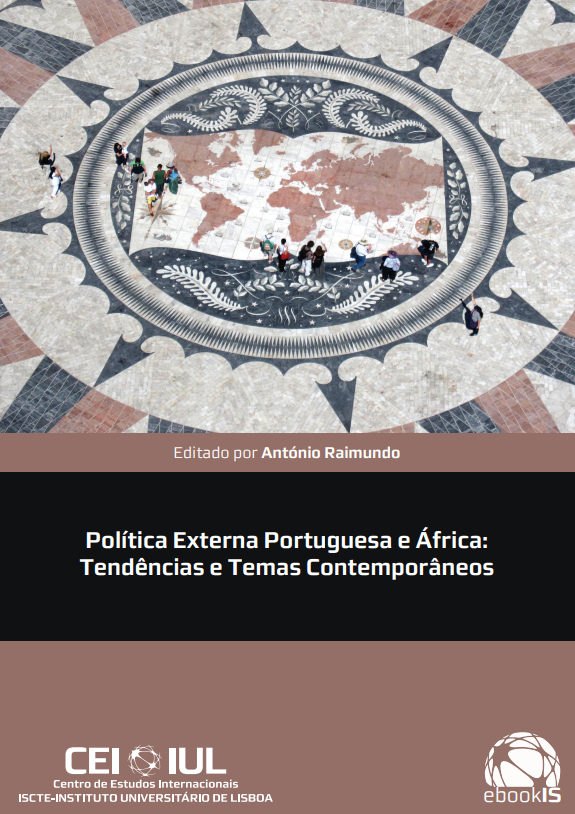
Portugal e o Bazar Africano: Mapeando trocas comerciais, fluxos de investimento e de ajuda ao desenvolvimento
Abstract:
Authored by Luís Mah, Portugal e o bazar africano: Mapeando trocas comerciais, fluxos de investimento e de ajuda ao desenvolvimento (with Rodrigo Ferreira do Amaral and Tcherno Baldé) is the fifth chapter of the e-book “Política Externa Portuguesa e África: Contextos e Tendências Contemporâneo” by A, Raimundo. In recent decades, Africa has gone from a ‘hopeless’ continent to an attractive and potential frontier market. The rapid economic changes in the region have benefited from new patterns of global engagement, involving emerging economies such as China or India. These developments have promoted increasing South-South cooperation, with several African countries seeking greater integration into the world economy. This chapter begins by analysing the current African economic context. Next, it explores how Portugal has developed its economic presence and cooperation on the continent since the mid-1970s, considering three indicators: trade, investment and development aid. Finally, the article assesses the challenges and opportunities for Portugal’s economic relations with Sub-Saharan Africa.
Quotation:
Mah, Luís (2019). Portugal e o bazar africano: Mapeando trocas comerciais, fluxos de investimento e de ajuda ao desenvolvimento (com Rodrigo Ferreira do Amaral e Tcherno Baldé) Em Política Externa Portuguesa e África: Contextos e Tendências Contemporâneo editado por António Raimundo, Lisboa: Centro de Estudos Internacionais, ISCTE-Instituto Universitário de Lisboa. ISBN 978-989-781-168-5. Cap. 5. pp. 121-139.
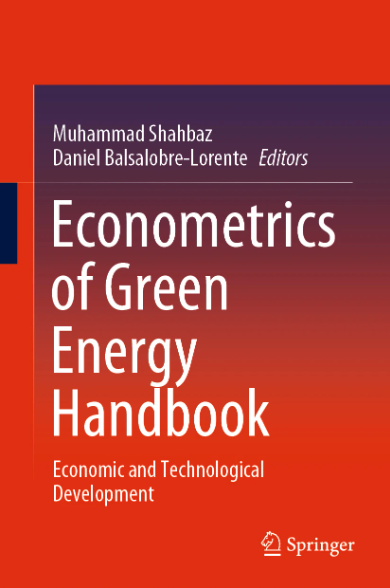
The Causality between Energy Consumption, Urban Population, Carbon Dioxide Emissions and Economic Growth.
Abstract:
This article assesses the relationship between electricity consumption and urbanisation by comparing the econometric results of distributed autoregressive lag (ARDL) and vector autoregressive lag (VAR) for the period 1960-2015. Granger causality is also applied to the Portuguese economy. In this study, we use some hypotheses that describe the link between electricity consumption, urban population, carbon dioxide emissions, and economic growth. The motivation of this research focuses on the relationship between electricity consumption (energy consumption) and urban population, supported by the theoretical and empirical contributions of energy and urban economics. The empirical results show that electricity consumption exhibits causality with economic growth, urban population, carbon dioxide emissions, and international trade. This research also proves that there is cointegration among all variables in the long run. Authored by Nuno Carlos Leitão e Daniel Balslobre-Lorente, this chapter (nº5) is part of the book “Econometrics of Green Energy Handbook”, which shares essential insights into the dynamic between energy innovations, environmental guidelines, and economic development, demonstrates how globalization has led to the development of greener energy technologies, paints a global picture using case studies on energy innovation in numerous countries and discusses both technological and policy aspects of green energy development.
Quotation:
Leitão, N.C. & Lorente, D. B. (2020): The Causality between Energy Consumption, Urban Population, Carbon Dioxide Emissions and Economic Growth. Springer Handbook Green Energy Series: Econometry of Green Energy- Economy and Technological and Development. Publisher: Springer.
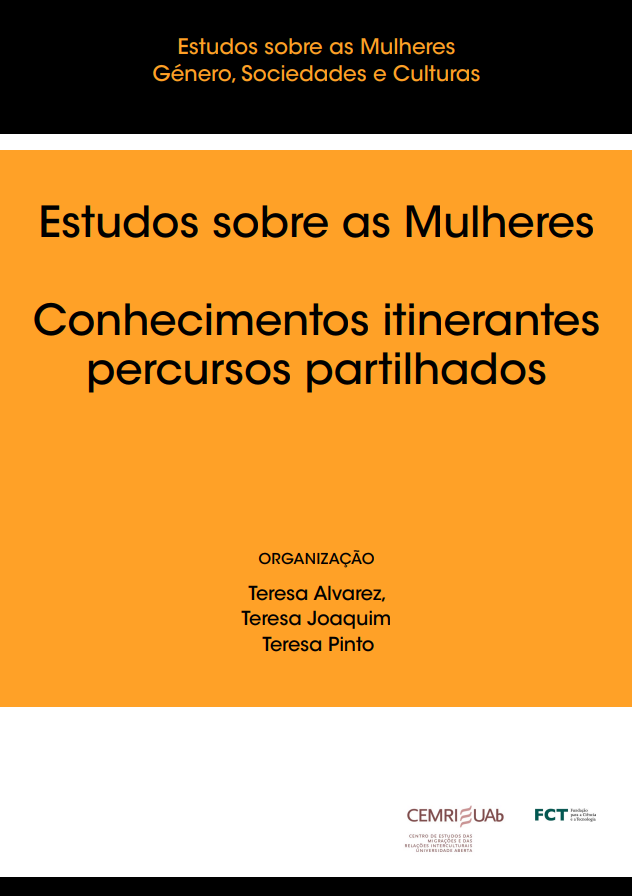
Contributo para uma leitura sobre práticas de cooperação para o desenvolvimento. O Projeto PAIPA implementado na Guiné-Bissau.
Abstract:
Contributo para uma leitura sobre práticas de cooperação para o desenvolvimento. O Projeto PAIPA implementado na Guiné-Bissau refers to an evaluation work of the Project to Support the Intensification of Food Production (PAIPA), a development cooperation project in the field of agriculture, included under the scope of Portuguese cooperation with Guinea-Bissau. The main objective was to construct an Evaluation focused on the intervention methodology designed for the implementation of the project, analysing the pathways, actions and resources mobilized to achieve the central objective of promoting the transition from traditional family-based agriculture in Guinea-Bissau to cash crop agriculture. The project documentation was analysed, interviews were conducted in Portugal and Guinea-Bissau with technicians and cooperation agents, local informants and PAIPA beneficiaries in the regions where the intervention took place. PAIPA was considered a successful project because it is based on respect for local specificities and is committed to the involvement of the target populations.
Quotation:
Frias, Sónia, (2019), “Contributo para uma leitura sobre práticas de cooperação para o desenvolvimento. O Projeto PAIPA implementado na Guiné-Bissau” in Alvarez, Teresa, Teresa Joaquim e Teresa Pinto (org.) Estudos sobre as Mulheres – conhecimentos itinerantes, percursos partilhados, Estudos sobre as Mulheres 1. Lisboa. CEMRI/UAberta. ISBN 978-972-674-863-2.
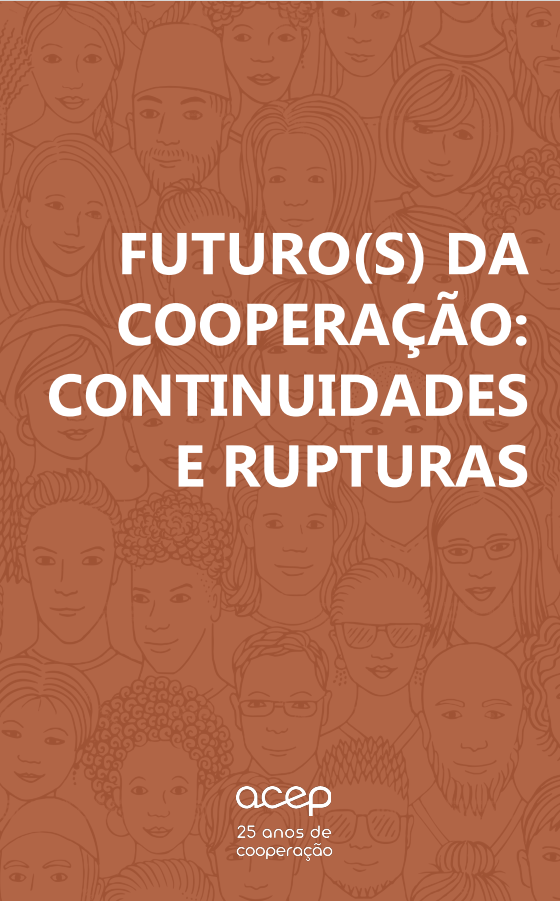
Futuro(s) da Cooperação: Continuidades e rupturas
Abstract:
At a time when a new strategy for Portuguese Cooperation is being defined and profound changes are taking place at the global level, ACEP and CEsA have decided to mark their years of experience in the sector with a document that is intended as a contribution towards evaluating the path of Portuguese Cooperation policy and setting the course for possible futures. In Futuro(s) da Cooperação: Continuidades e Rupturas, in addition to our vision and questions about the policies of Portuguese and European cooperation and the role of civil society, we have also included other voices of partners and specialists, particularly from Africa, which run through the whole document and give it a more plural, multidisciplinary and multi-geographic character. This document was prepared by the ACEP team, within the framework of an advocacy and political influence project, developed in partnership with CEsA (CSG/ISEG/ULisboa), with the support of Camões – Instituto da Cooperação e da Língua. Alongside the rescue of principles and values – in speech and in practice – a serious and uncomplicated discussion must be started on power relations and the ‘delocalisation of aid’, laid bare by the pandemic crisis. This debate, already on the agenda in countries like the United Kingdom, is still absent in Portuguese Cooperation. An approach to the localisation of cooperation as a process of autonomisation implies a process logic, without a fixed time, in which non-financial resources are valued, which allows for a subjective space/time for growth and which lasts beyond this or that funding or project.
Quotation:
Oliveira, A. F., Proença, F., Cavaco, R. (2021). Futuro(s) da Cooperação: Continuidades e rupturas. Lisboa: ACEP e CEsA.
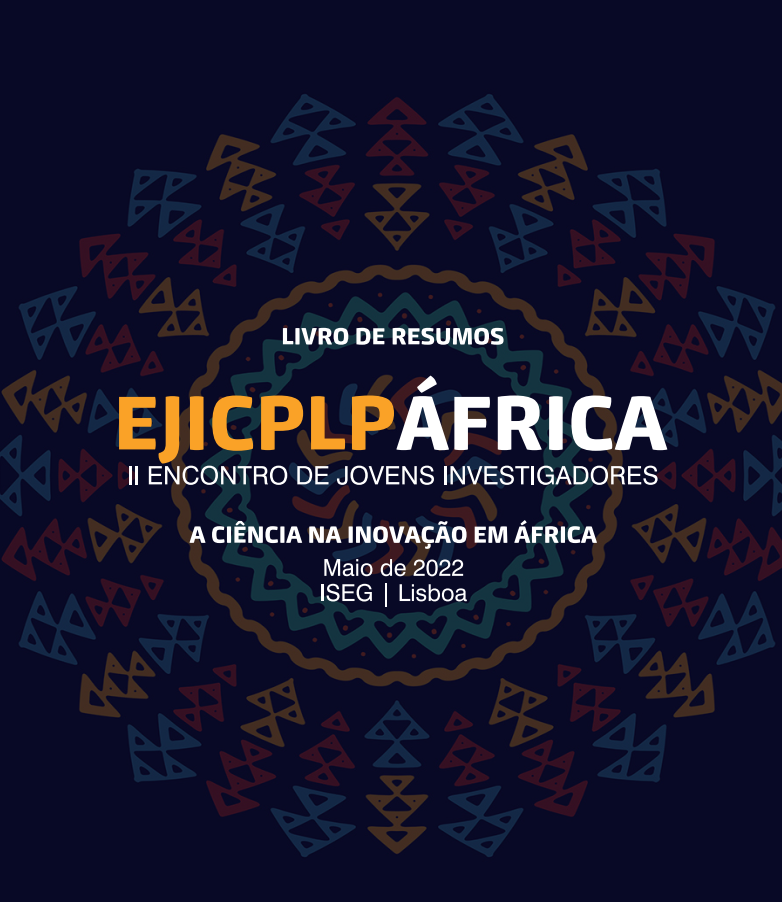
Ebook – EJICPLP Africa: Science in Innovation in Africa
Abstract:
The Meeting of Young Researchers from CPLP on Africa is an inclusive space for debate and scientific dissemination in African studies and in Portuguese language, in an innovative, democratic and multicultural perspective. The success of this project began in 2021, when it was proposed to bring participation and protagonism to young people, as agents of change in a living community in permanent transformation. In this context, the 2nd Meeting was held in May 2022, in Lisbon, where the role of science in innovation in Africa was discussed, exceeding all expectations, whether in the quality of the debates, the excellence and diversity of the works presented, or the massive adhesion of the participants. The Meeting took place thanks to the work carried out by the Organising Committee, an International Scientific Council, with the collaboration of the Centre for African and Development Studies (CEsA), as the proponent entity. in addition to the support of other partner institutions, such as the CPLP, Lisbon City Council (CML), Higher Institute of Economics and Management (ISEG), Catholic University of Angola (UCAN), Union of Portuguese Speaking Capital Cities (UCCLA), Eduardo Mondlane University (UEM – Mozambique), Association of Municipalities for Sustainable Development of the Umbria Region (FELCOS – Italy). The 2º Encontro de Jovens Investigadores da CPLP sobre África – Livro de Resumos was only possible thanks to the collaboration of numerous people, in particular the Organizing Committee, the Scientific Council, the Speakers, the Institutional Partners, the Medias Partners, the Volunteers and the Scientific Community.
Quotation:
D’Abril, Cristina Molares [et al.] (2022). “2º Encontro de Jovens Investigadores da CPLP sobre África. Livro de Resumos”. ISBN: 978-989-54687-3-7
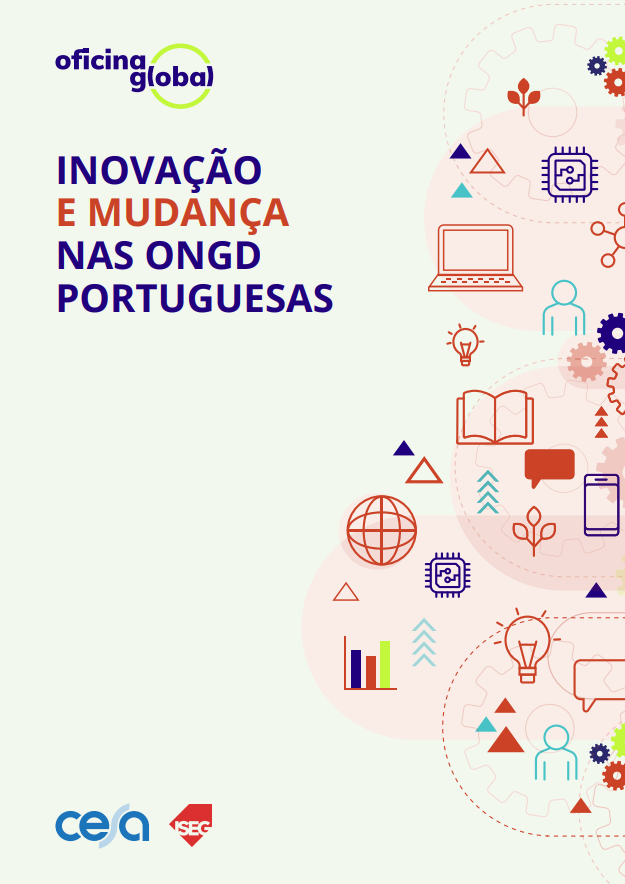
Inovação e mudança nas Organizações Não-Governamentais de Desenvolvimento (ONGD) Portuguesas
Inovação e mudança nas Organizações Não-Governamentais de Desenvolvimento (ONGD) Portuguesas by Ana Luísa Silva and Renata Assis focuses on innovation for development in the context of Portuguese NGDOs. Given the diversity of interpretations that the concept of innovation itself raises, the study began by mapping the perspectives, practices and culture of innovation of the actors under analysis. In this way, we sought to ascertain what is innovation for Portuguese NGDOs? What priority do they give to innovation? What obstacles do they face? And what reasons lead Portuguese NGDOs to wish (or not wish) to innovate?
Abstract:
This study focuses on innovation in the context of International Cooperation for Development (ICD) – innovation for development – from the perspectives of Portuguese Non-Governmental Development Organizations (NGDOs). Given the diversity of interpretations that the concept of innovation can present, any analysis on the subject must begin by identifying the perspectives and practices of the actor(s) under analysis. In this way, the analysis is guided by the questions: what does innovation mean for Portuguese NGDOs? What priority do you give to innovation? What obstacles do you face? What types of innovation do they develop and implement? What reasons lead Portuguese NGDOs to want (or not want to) innovate? As this is the first wide-ranging study on innovation in Portuguese NGDOs, we sought to map the culture, capacity, existing innovation support structures in Portuguese NGDOs and also identify obstacles/constraints to innovation in these organizations. The study was carried out through an online questionnaire survey, which received responses from 46 organizations in the period from November 9 to 26, 2021. The sample included organizations with a wide variety of organizational structures, according to the diversity of the universe of 163 Portuguese NGOs. The survey results show that innovation is very present in the agenda, strategies and priorities of the NGDOs surveyed: for the vast majority (88%) it is a “High” or “Very High” priority in the scope of their work. Respondents show broad and multifaceted perspectives in defining innovation. However, for the NGDOs that responded to the survey, innovation is mainly seen as a tool to improve processes, increase the efficiency and impact of their work. Potentially disruptive innovations capable of leading to systemic change are infrequent in the identified examples. In addition, although they consider themselves innovative, the NGDOs surveyed also identify important obstacles to innovation, namely in terms of funding and available human resources – 73% say they do not have any kind of budget available for innovation. The study ends with a set of reflections and identifies possible ways to help build a context more conducive to innovation for development, particularly in Portuguese NGDOs. It is important that innovation is seen and approached as an approach to building social and systemic change, which is why it is essential to invest in partnerships and joint work. Among the possible paths presented, the creation of a multi-actor working group dedicated to the theme, the creation of a fund to finance innovation projects for development and the commitment to training and training NGDO employees stands out.
Quotation:
Silva, Ana Luísa e Renata Assis (2022). Inovação e mudança nas Organizações Não-Governamentais de Desenvolvimento (ONGD) Portuguesas. Lisboa: CEsA – Centro de Estudos sobre África e Desenvolvimento/ISEG
Access the article here.
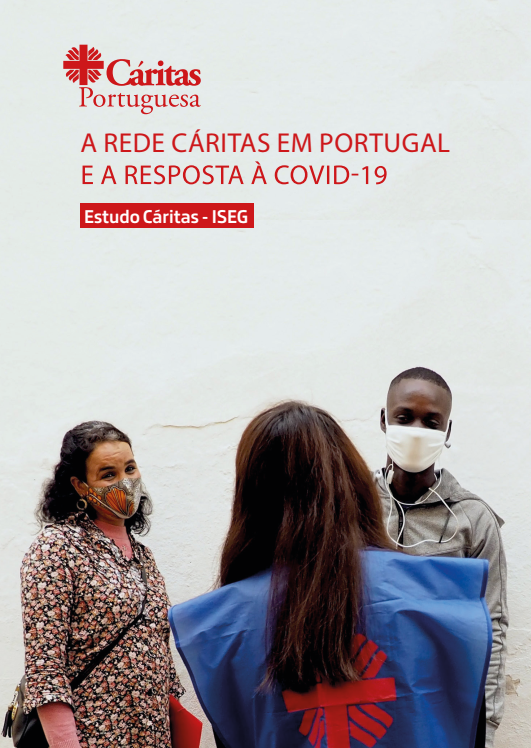
A Rede Cáritas em Portugal e a Resposta à Covid-19
Resumo:
A Rede Cáritas em Portugal e a Resposta à Covid-19 analyzes the importance of the social action of the Cáritas Network in Portugal in an unexpected and health emergency context, by documenting the organization’s response to the Covid-19 pandemic. An analysis is made of the continuity actions, but also of the innovations that emerged during the first year of the pandemic. With a presence that covers all the districts of Mainland Portugal and Islands, the Cáritas Network in Portugal developed, for the first time, a National Program of direct support to families in the form of goods and food stamps, as well as occasional and urgent financial support intended for payment of basic needs such as rent, health and electricity expenses, to a considerable number of beneficiaries (10,444 people, 3,205 families). The study shows that the Cáritas Network in Portugal was able to continue the food support activities and occasional support that it was already developing, given a greater demand from families: 60% of people who sought support from Cáritas in this period had never resorted to this kind of help.
Citação:
Pais Bernardo, Luís, Ana Luísa Silva, Renata Vieira de Assis e Luís Mah (Coord.). 2021. “A Rede Cáritas em Portugal e a Resposta à Covid-19”. Estudo Cáritas / CEsA-ISEG. Lisboa: Cáritas Portuguesa. Agosto.





